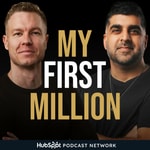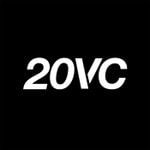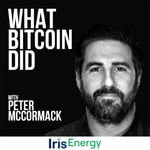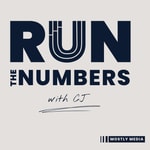The Modern CFO – Details, episodes & analysis
Podcast details
Technical and general information from the podcast's RSS feed.
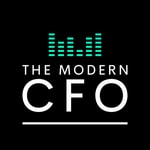
The Modern CFO
Nth Round
Frequency: 1 episode/26d. Total Eps: 49
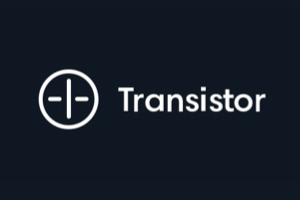
Recent rankings
Latest chart positions across Apple Podcasts and Spotify rankings.
Apple Podcasts
🇨🇦 Canada - management
21/06/2025#78🇩🇪 Germany - management
10/06/2025#100🇺🇸 USA - management
31/05/2025#99🇬🇧 Great Britain - management
29/05/2025#77🇬🇧 Great Britain - management
23/05/2025#90🇨🇦 Canada - management
11/04/2025#63🇨🇦 Canada - management
21/02/2025#74🇨🇦 Canada - management
31/01/2025#78🇬🇧 Great Britain - management
29/12/2024#61🇬🇧 Great Britain - management
12/09/2024#78
Spotify
No recent rankings available
Shared links between episodes and podcasts
Links found in episode descriptions and other podcasts that share them.
See all- https://customer.io/
501 shares
- https://www.thoughtspot.com/
134 shares
- https://www.gemini.com/
111 shares
- https://twitter.com/StevenKelly49
24 shares
- https://twitter.com/mattwensing
11 shares
- https://twitter.com/usesummit
2 shares
RSS feed quality and score
Technical evaluation of the podcast's RSS feed quality and structure.
See allScore global : 73%
Publication history
Monthly episode publishing history over the past years.
The Journey to Interplanetary Innovation with Relativity Space CFO Mo Shahzad
Episode 48
mercredi 7 août 2024 • Duration 38:31
Relativity Space’s CFO, Mo Shahzad, has been instrumental in shaping aerospace innovation, most significantly in helping build and launch Terran 1, the world’s first 3D-printed rocket. Mo's commitment to pushing the boundaries of what's possible in space exploration underscores his pivotal role in steering Relativity Space to the forefront of the industry.
In this episode, Mo joins host Andrew Seski to share his unique journey from growing up in Pakistan to joining a cutting-edge company. He provides insights into how competition fuels progress and emphasizes the importance of maintaining integrity and transparency as core company values. Mo also discusses how Relativity Space fosters a culture of curiosity and eagerness for learning, enabling the company to quickly iterate on its ambitious mission to make life interplanetary.
Tune in to hear from an incredible leader advancing aerospace ingenuity, as Mo navigates the industry’s complexities with an unwavering focus on progress. This episode provides a fascinating glimpse into the future of space exploration and highlights how modern finance plays a crucial role in shaping it.
Show Links
Connect with Mo Shahzad on LinkedIn
Connect with Andrew Seski on LinkedIn
Discover more about Relativity Space today!
Leveraging "The Venture Mindset" with Ilya Strebulaev
Episode 47
vendredi 7 juin 2024 • Duration 44:36
In the complex world of academia, corporate finance, and venture capital, few names resonate as powerfully as Ilya Strebulaev’s. As a Professor of Finance at the Stanford Graduate School of Business, Ilya has cemented his reputation as a leading authority in corporate finance, financial decision-making, and private company valuation.
Ilya’s academic journey is marked by countless accolades and published works in top-tier academic journals. In his latest book, The Venture Mindset, Ilya’s research provides profound insights into venture capital markets, offering a deeper understanding of financial strategies employed by firms today. Known for his rigorous analysis and clear articulation of complex financial concepts, Ilya’s work is a cornerstone for both scholars and practitioners alike.
In this episode, Ilya joins host Andrew Seski to discuss his extensive research and its implications for modern CFOs. He delves into the nuances of venture capital, the history that led him to his success, and some of the core principles that allow VCs to pursue success despite the odds.
Listeners will gain invaluable perspectives on how to navigate the intricate financial terrain from one of the foremost experts in the field. Whether you're a seasoned CFO or aspiring to enhance your financial acumen, this episode promises to enrich your understanding of corporate finance and venture capital, guided by Ilya’s expertise and experience.
Show Links
- Connect with Ilya Strebulaev on LinkedIn
- Connect with Andrew Seski on LinkedIn
- Order your copy of his book The Venture Mindset today
How Turo Assembles Trust, Value, and Platform Power in the Car-Sharing Industry with Chuck Fisher
Episode 38
mercredi 2 août 2023 • Duration 53:25
Have you ever wondered what the future of car-sharing looks like?
Turo CFO Chuck Fisher unpacks this with host Andrew Seski on this episode of The Modern CFO Podcast. Chuck also shares his perspective on the role of trust in car-sharing technology, the economic value created on Turo's platform, and how Turo is bridging the gap in transport insecurity.
Listen in as Chuck shares his most memorable pit stops and detours along Turo's journey, including the company's rapid growth in 2021.
From the role and impact of his mentors, to scaffolding platforms, hear Chuck’s route to the CFO seat and how Turo is using data-driven decision-making to create a more sustainable and equitable transportation system.
Show Links
Accounting for Variability with Jessica Holscott
Episode 37
mardi 27 juin 2023 • Duration 27:25
Jessica Holscott didn’t always have a clear route to a public-facing C-suite role. She had spent many years in different industries — from lighting to vehicle manufacturing — transitioning through a variety of positions to become the well-rounded businesswoman she is today.
Most recently, she served as executive vice president (EVP) and chief financial officer (CFO) of WarnerMedia Studios & Networks. Prior to that, Jessica held several leadership roles, including EVP and CFO at HBO, senior vice president of investor relations at Time Warner, and CFO of NBCUniversal’s TV Stations division, where she brought a wealth of experience and knowledge in financial management, strategic planning, acquisitions, and more.
In this episode of The Modern CFO, Jessica talks with host Andrew Seski about the playbooks that guided her throughout her career and how she transitioned into the public-facing media landscape. An avid networker with deep roots in the entertainment industry and blue-chip consumer companies, Jessica also shares invaluable lessons for aspiring CFOs seeking mentorship.
Show Links
Navigating the Evolving World of CFO Leadership with Dan Ellis of Townsend Search Group
Episode 36
jeudi 8 juin 2023 • Duration 35:52
For Townsend Search Group, executive search is a highly personalized process—one that requires looking at the market, the competitor environment, and the culture of the client’s organization, and then drawing up a tailored strategy for them. The goal isn’t just to find candidates. Rather, Townsend aims to place change-making leaders that fulfill long-term goals, influence strategic plans, and impact decision making across client organizations.
In this episode of The Modern CFO, Dan Ellis, Managing Director at Townsend Search Group, dives into the challenges, strategies, and invaluable lessons for aspiring CFOs and those seeking effective financial leadership. With over a decade’s experience in public accounting and consulting, Dan Explores the diverse personalities, drive, and discipline that define these financial leaders. From the vital role of athletics in shaping their work ethic to the crucial balance between work and personal life, gain valuable insights into what it takes to excel in the competitive world of CFOs.
Show Links
- Check out Townsend Search Group
- Follow Townsend Search Group on LinkedIn
- Connect with Dan Ellis on LinkedIn
- Connect with Andrew Seski on LinkedIn
Transcript
Please note that the transcript is AI-generated and may contain errors. The content in the podcast is not intended as investment advice, and is meant for informational and entertainment purposes only.
[00:00:00] Andrew Seski: Hello, everyone. Welcome back to another exciting episode of The Modern CFO Podcast. As always, I'm your host, Andrew Seski. Today, we're joined by Dan Ellis, managing director of Townsend Search Group, a search group based in Michigan, my home state. And for just over a decade, Dan shared his career experience in public accounting and consulting and today is connecting private equity groups or portfolio companies with the best talent there is. Dan, thank you so much for joining us today.
[00:00:35] Dan Ellis: Andrew, thank you. Happy to be here and excited to chat about some topics about the modern CFO.
[00:00:43] Andrew Seski: So one of the reasons I'm so excited that you're on the podcast is that we get all of these incredible insights from CFOs in their fields. And while they're all diverse, I think your perspective should be really unique and valuable to them. It's a somewhat opaque world and I know that market dynamics have severely shifted in the last few years and even last few months. Before we dive into the whole world of CFO placements and Townsend as a search group, I'd love to go back in time and learn a little bit about how you initially became interested in accounting and maybe even earlier days outside of undergrad.
[00:01:20] Dan Ellis: Yeah, sure. I appreciate that. I grew up in an entrepreneurial family. My father and grandfather purchased a manufacturing company that they grew and successfully operated. So I always wanted to be a business owner and I saw accounting as a path into that. So went to Western Michigan University, got my accounting degree. After that, spent eight years in public accounting and consulting as a CPA. Towards the tail end of that, I got into M&A advisory, due diligence, transaction support. And really liked that environment, but didn't see myself being a partner in a public accounting firm. I wanted to do something more entrepreneurial where you could eat what you kill. And so I was introduced to my colleague and partner Peter Bridges at Townsend Search Group. And just came into the executive search and recruiting world with a network previously in private equity and consulting and was able to learn the operations and the process of executive recruiting and eventually become very good at executing searches, which ultimately led into more to business development and opportunities like this to meet you.
[00:02:31] So our specialty at Townsend has really become working with middle-market companies, lower middle-market companies that are privately owned, most often private equity sponsored. So we do a lot of work in the private equity community, not only at the firm level or within the funds and working with the investment teams, the operating teams. We spend a significant amount of our time working within the portfolio companies, placing accounting, finance, operational executives, and leaders. So I think today, we'll spend most of the time on CFOs. And just to set the context, a lot of our focus is in the middle market with privately owned businesses.
[00:03:13] Andrew Seski: Yeah, that's really helpful. Thanks for that. Yeah, I think in my mind when you're going out and engaging with a search firm maybe for the first time, you may have some hesitations and I'm curious as to when and how maybe CFO should begin the process of engaging with the search firm. I feel like the marketplace, maybe the tenure has shortened a bit in a typical amount of turnover in the C-suite in general right now. I'm curious as to when it would be most strategic to engage with search firms, understand the marketplace better, or if you should essentially always have a good pulse on the market.
[00:03:51] Dan Ellis: I think it's always important to have a good pulse on the market. And this comes into a little bit of how do you develop into a CFO. And I think earlier in a career as a candidate, as an aspiring CFO, being in contact with the recruiter can really help you be more strategic with developing your skill set to be a CFO. So we can understand your background and experiences and where you want to get and try to align your interests with companies or CFOs that are looking to hire someone in those functional areas. So making sure that you're deliberate and strategic with your career development is something that a recruiter can help counsel or advise. We can give you data points on what the market holds in terms of compensation and really just help make sure that you're aware of what's out there in the market.
[00:04:45] Now, if you're a sitting CFO and you're building a team, being in contact with us is very valuable because we're constantly in the market talking with folks. We know what they're making. We know what they're looking for. If we can understand the vision that a CFO is trying to drive in a business, the strategy they're trying to execute, we can find candidates or we may know candidates that align with that strategy and that vision, and therefore it creates a win-win in the fact that we're getting the candidate the technical and the experiences that they need to develop their skillset to be a CFO, but we're also helping that sitting CFO build out their team and drive what they're looking for. So hopefully, that's helpful.
[00:05:34] Andrew Seski: Definitely. I mean, so you've been with Townsend for about a decade now. And the world has changed a lot and we've been through a number of economic market cycles and then the last few years have been extremely interesting. I'm curious as to how that impacts — maybe equity becomes more important in a cash-restricted business that needs to ramp up and scale. I'm curious what a search firm market environment is, like what the cycles are in the marketplace for you, maybe what the lag is, and then what it is like in our curre...
Beyond the Ballpark: Winning Strategies for CFOs with John Nickolas of The Philadelphia Phillies
Episode 35
mercredi 17 mai 2023 • Duration 36:02
It is a real privilege to invite you to listen to this exclusive podcast episode featuring John Nickolas, the esteemed CFO of the Philadelphia Phillies since 2007. With a rich background that includes notable contributions to Philadelphia's business landscape through esteemed firms like KPMG, Safeguard Scientifics, and Internet Capital Group, John's leadership has been instrumental in shaping the success of the city's iconic ventures.
In this episode of The Modern CFO, host Andrew Seski engages in a compelling conversation with John, delving into the intricacies of managing a publicly visible yet privately-owned enterprise such as a professional sports franchise. Drawing from his extensive experience, John shares veteran insights that hold relevance for CFOs and aspiring leaders alike. Don't miss this opportunity to gain valuable perspectives from a seasoned industry expert.
Show Links
The Intersection of Digital Transformation and Customer Experiences with Zhi Li of Customer.io
Episode 34
jeudi 27 avril 2023 • Duration 41:28
As customer expectations continue to evolve, marketers must adapt by delivering more personalized, timely, and efficient communication. This is where the online marketing platform Customer.io truly shines.
Customer.io enables tech-savvy marketers to engage with their customers in a more meaningful way through emails, SMS, push notifications, and more. For the fast-growing SaaS companies that Customer.io serves, this capability could translate into stronger customer relations, higher conversion rates, and increased scalability.
In this episode of The Modern CFO, host Andrew Seski talks with Customer.io CFO Zhi Li about his nonlinear career path, the impact Customer.io can have within organizations, how marketers can use AI as a fractional assistant, and more.
Show Links
- Check out Customer.io
- Follow Customer.io on LinkedIn, Twitter, and Instagram
- Connect with Zhi Li on LinkedIn
- Connect with Andrew Seski on LinkedIn
Transcript
Please note that the transcript is AI-generated and may contain errors. The content in the podcast is not intended as investment advice, and is meant for informational and entertainment purposes only.
[00:00:00] Andrew Seski: Hello, everyone. Welcome back to another episode of The Modern CFO Podcast. As always, I'm your host, Andrew Seski. Today, I'm joined by Zhi Li, CFO of Customer.io. Zhi, thank you so much for being here today.
[00:00:21] Zhi Li: Thanks for having me.
[00:00:23] Andrew Seski: So I'd love to talk about your career progression, the route to the CFO role, your first time as a CFO in earlier companies. But before we do so, I'd love to hear a little bit of background as to what you were interested even in undergrad and some of the first roles that you had, you know, right out of Penn.
[00:00:41] Zhi Li: Yeah, yeah. So maybe just a little bit of myself and then we can probably launch into different topics that would go in there. But so I was born in China and then grew up in the Bay Area and then went to Penn. You and I just chatted about like Philly, which is the city that I really love. But after Penn, I actually started my career in Canada. So I was in finance at a wireless division of a large telco called Bell Canada. And then after that, I moved back to the US. So I worked in investment banking in New York in the tech group of Credit Suisse. So if you follow banking, you know, Credit Suisse might be called UBS or First Boston later on or something like that. So that's the some of the new dynamic there. But I learned a lot during that time in banking. Worked a lot as well but, you know, on many tech M&A and IP financing deals there and also get to interact with a ton of smart, hard-working, talented people. And then after that, I actually moved to Seattle cold turkey. And the backstory to that was my wife and I were both actually in grad school in LA. When I took the job to move to New York, I made a deal with her and say, Hey, you know, we need to transfer your grad school. She's got two more years. You know, whenever you are ready to leave, I'll hold up by end of the bargain. So no questions asked. When you're ready to leave New York, then I'll go. So the time came. This is probably like seven years ago. She says she wants to move to Seattle closer to her family. And then, I picked up and go. I did not know anybody in Seattle going in. But Seattle, I — now, like it's home for me. So I love it. It reminds me of maybe the Bay Area when I was, you know, many, many years ago, you know, back in high school when I kind of grew up in the Bay Area. So but yeah. So now, I'm in Seattle. I focus on helping fast-growing SaaS companies, helping them scale. So, you know, the one of the company was Skytap, which is a Seattle-based enterprise SaaS company. And we did a number of transactions, including a Series E Round led by Goldman Sachs. And then after that, I was with MedBridge. So it was a growth P/E-backed company, and we sold the company from one growth P/E to another growth P/E. And now, I'm at Customer.io. So very happy at the momentum and everything that we have here at the company. So just really, I think, very fortunate to be part of this growing story with Customer.io. Yeah, so that's generally the work background.
[00:03:07] Outside of work, I also, you know, spend time doing the alumni interview for the Penn undergrad admission, which I always find super refreshing to see the fresh applicants every year. And I've always been amazed with the quality of the applicants. And then also, I'm on the board of an organization called LCYC — Legal Counsel for Youth and Children. So we're focused on advancing the rights of our youth and children so.
[00:03:35] Andrew Seski: That's a pretty incredible resume. I want to — we're gonna pick it all apart, but let's start right at your last and current role right now, Customer.io. And I'm curious to know first, what attracted you to the firm, the leadership, maybe some of the cultural ways that the firm's been building out over the last decade, and also maybe the value add of working together. I know there are a million SaaS solutions out on the marketplace today. The venture world has been in flux over the last few years. So I'd love to learn a little bit more about the firm, how you're delivering value to clients, and what got you most excited. And you've been there for about two years now, so, you know, maybe bring us back two-ish years.
[00:04:19] Zhi Li: Yeah, yeah. So just a little bit about Customer.io. So we're a leading multi-product, customer engagement platform. I think today, it's actually super exciting day 'cause we have our new launch of customer data pipeline that we launched today for early access. So, you know, throughout the last 10 years or so, our core product has been the Customer Engagement Platform, where we allow tech-savvy marketers to engage with their customers through emails, SMS, and push notifications, and also in-app messaging. And now, we also allow a new product called the Data Pipelines, so we can leverage first-party data to create more unified view for our customer records. So super exciting.
[00:05:00] And I think what really attracted me — with my background, I've looked at a ton of software SaaS companies and looking at like their value and their potential. I was really attracted to number one, it's founder-led. So Colin, our CEO, has been there from day one. He's got this really long-term vision, and I really kind of feel aligned with that vision. And also, we are very horizontal in terms of like our approach to our customers. So we want to partner with early tech companies. So if you're like a VC-backed early company, we want to be partnered with you early on and grow with you, and then just try to be, you know, as you kind of advance and mature as a company, we will be part of that. And so throughout that journey, we were able to provide a lot of value for you to engage with your customer. The company's also fully remote, which I find super refreshing as well. When I joined, it was just right around the COVID time, so people are like definitely warming up to that remote idea. But the company...
Bridging the Gap in NextGen Communications with Anthony Pastore of UBS
Episode 33
mardi 28 février 2023 • Duration 41:51
In the world of wealth and asset management, and the private markets in general, there is a noticeable communication gap between generations.
The next generation of owners–people between the ages of 18 and 25–are prolific consumers of digital content, from Reddit threads to Spotify podcasts. For many businesses, that means adopting new technologies, broadening offerings, and finding modern ways to effectively serve clients.
In this in-person episode of The Modern CFO, host Andrew Seski visits with Anthony Pastore, Head of Broadcast Communications at UBS, to chat about what his firm is doing to bridge that generation gap in communicating and investing, the role that social media and video plays in staying relevant and ahead of the competition, and the importance of having a digital approach to maintaining the massive amount of wealth transferring to the next generation in the decade to come.
Show Links
- Check out UBS
- Follow UBS on LinkedIn
- Listen to UBS Trending on YouTube or your preferred podcast app
- Connect with Anthony Pastore on LinkedIn
- Check out Nth Round
- Connect with Andrew Seski on LinkedIn
Transcript
Please note that the transcript is AI-generated and may contain errors. The content in the podcast is not intended as investment advice, and is meant for informational and entertainment purposes only.
[00:00:00] Andrew Seski: I'm Andrew Seski and this is The Modern CFO Podcast. I'm thrilled today to be joined by Anthony Pastore, head of broadcasting at UBS. We're in New York. We're here together. It's a rare opportunity for me and I'm thrilled about the conversation that we're gonna have today. Anthony, thank you so much for being here.
[00:00:25] Anthony Pastore: Andrew, I'm honored to be here with you and it's very rare for me to be on the other side of the table of, podcast and video interviews. Usually, I'm the one asking the questions so I actually said to my team today as I was preparing to sit with you, I was like, I'm a little nervous. I'm not used to being interviewed. I'm usually the interviewer so I wouldn't be surprised if at some point I start turning the microphone to you and saying, "Andrew, I have a few questions for you as well" so hopefully, you're prepped for that.
[00:00:49] Andrew Seski: I'm happy to.
[00:00:51] Anthony Pastore: Anyway, I'm really happy to be with you. This is great.
[00:00:53] Andrew Seski: Excellent. Well, I think the beginning of our conversation should probably start around your early career and why we're talking today. There's a huge gap in the wealth management and asset management world between generations. We are all consuming media in a different way, which is why I'm glad to be using this medium. And I'd love to learn from you as the head of broadcasting at UBS to explain what some of the brightest minds in the world are doing to bridge that gap. So, we have a ton to cover and I hope that it's a useful lesson for a bunch of CFOs who also have to communicate across a bunch of different cohorts of people. Whether they're investors or they're your C-suite or they're part of your team, having strong communication flows in a really technical way or a technical area like finance is just invaluable when it comes to senior leadership so.
[00:01:44] Anthony Pastore: Yeah, I agree with that, by the way. And it's interesting because, and once we get into it, I'll talk more about it, but I think one of the interesting things about a job like what you and I do is we have to always be thinking, you know, five steps ahead of everybody else but it's really hard to do considering the competition in the media space. But what I think is interesting is we're talking about it, like I'm sitting in a wealth management firm at UBS and that's unique to our industry specifically — to have content like podcasts and virtual events and videos and internally for our employees and externally for anybody who wants to get a glimpse of what's going on and the thought leadership from this the UBS side. But, yeah. I know I'm going off on tangents here but I know you and I are both thinking similarly like what how much competition there isn't. How do you keep on top of it and stay relevant, especially for somebody who's sitting in a CFO seat?
[00:02:37] Andrew Seski: Right. And the CFO doesn't typically get called upon for many any of the — I always say on the podcast, if you want to hear the vision of the company, you go watch the Bloomberg interview with the CEO. If you want to hear how finance is actually, you know, a key role in how that innovation is created, you come back to the podcast and listen to The Modern CFO and you listen to people like Anthony who are able to share insights from, you know, unique people who have a lot of sway into how companies are financed. So, strategic finance can take forms and a lot of different ways. We were just laughing about how both of us found ourselves in this building but neither came from purely financial roles like at wealth management firms.
[00:03:20] Anthony Pastore: That's right. Yeah. And I guess that's a sort of a good segue. So and as you were asking, my background is pretty colorful. I kind of came up and I say this to all the younger people who start now. I'm in my late forties. I consider myself a true Gen X-er listening to grunge music because I was depressed and sad wearing my flannels in the nineties. But coming out of college, I went to school for I was a bit of a Renaissance man, as I always say. I studied theater, I studied business administration, and I also studied speech and communications. And my father looked at me and said, "What are you gonna do with that?" I said, "I don't know but I'll figure it out." And back in those days, you know, I was starting to look for full-time work in, say, 1997. It was the tech boom was just starting. Companies were hiring and, as we know with Gen X, there were fewer of us on the planet so there were a lot more jobs than there were people to fill them. So, I got a job working early days at Smith Barney. RIP Smith Barney. What a great firm and I still obviously work with a lot of people from those days who are now here at UBS and other firms. But Smith Barney hired me to work on a stock plan services desk, and I was helping Bank of America employees exercise stock options that they were granted by being full-time employees. And I learned a lot about the business but somewhere along the way, I met a woman who said, "You'd be really good for our radio station." I said, "You have a radio station here?" And she said, "We do." And it was called at the time "Radio FCN," which stand stood for Radio Financial Consultant Network — before we started calling them financial advisors. I interviewed and the my guy who the gentleman who became my boss for the next decade said to me, "Do you have any experience with talking about finance on any kind of a medium like this?" and it was only internal content just to the employees. I said, "No." I said, "But I have a theater background and I can talk about anything." He sai...
Making Business Banking Frictionless with Jeremy Klaperman of Rho
Episode 32
mardi 10 janvier 2023 • Duration 40:22
Many small and medium-sized businesses in the country rely on a disparate range of financial services to help manage their accounts, expenses, and payments. Unfortunately, this system lends itself to time-consuming processes and inefficiencies that get in the way of growth.
That’s why Rho is integrating all the financial services businesses need into one easy platform. With Rho, finance teams can view everything in one spot, scrap inefficient processes, and focus on driving value and growth.
In today’s episode of The Modern CFO, host Andrew Seski talks with Rho CFO Jeremy Klaperman about how to 1) organize information systems, 2) build out an integrated data infrastructure from day one, and 3) embrace cultures of integrity from the CFO position. With decades of experience at elite financial organizations such as Goldman Sachs, D.E. Shaw, and Citadel, Jeremy expertly navigates his role as Chief Financial Officer.
Show Links
- Check out Rho
- Follow Rho on LinkedIn
- Connect with Jeremy Klaperman on LinkedIn
- Check out Nth Round
- Connect with Andrew Seski on LinkedIn
Transcript
Please note that the transcript is AI-generated and may contain errors. The content in the podcast is not intended as investment advice, and is meant for informational and entertainment purposes only.
[00:00:00] Andrew Seski: Hello, everyone. Welcome back to another episode of The Modern CFO Podcast. As always, I'm your host, Andrew Seski. Today, I'm thrilled to be joined by Jeremy Klaperman, CFO of Rho. Jeremy, thank you so much for joining me today. I'm excited to talk.
[00:00:23] Jeremy Klaperman: Thanks so much for having me. Really excited to be here.
[00:00:26] Andrew Seski: So, Jeremy, you've spent most of your career across some of the most storied investment firms, from Goldman to D. E. Shaw to Citadel. But this is your first foray into the CFO role. I'd love to hear a little bit about what it's been like over the last six months crossing this chasm.
[00:00:45] Jeremy Klaperman: It's been great. It's something that I've been looking forward to doing and planning for a while. And I think of my 20 years in investment banking and investment management as training for this because I either advised or invested in companies from all regions, from all industries, many different market cycles, whether it's the original tech bubble burst of the early 2000s to the global financial crisis to COVID. And I've had so many reps speaking with CFOs and CEOs. I've built up a great playbook of what I think best practices are and also pitfalls to avoid from everything from high level strategy to accounting to operations. And what I try to do with that is bring that to bear in my current role. And so, I view the last 20 years as kind of giving me the best practices and building up to what I'm doing now.
[00:01:40] Andrew Seski: So, can you tell us what Rho is and what the future of frictionless finance means to you?
[00:01:47] Jeremy Klaperman: Absolutely. So, Rho provides a wide range of financial services as well as spend management software to small and medium businesses. And a lot of our clients, almost all the small and medium businesses in the country have a disparate range of providers currently that give them all these things. They might have a bank, a credit card company, an investment firm that helps them manage their treasury and their cash. They might even have a FX transfer provider if they do a lot of international business. So, they could have two, three, or four providers of financial services. Increasingly, companies are using software on the spend management side for things like tracking expenses or automating bill pay and accounts payable. So, they could have one, two, three providers on the software side. They have all these disparate systems that don't work well, don't talk to each other, and it creates a lot of manual processes, errors, inefficiency. And the finance teams end up spending a huge amount of time just trying to do basic tasks rather than controlling their finances well, gaining strategic insights, running the business. So, what we do is we take out the entire stack on the financial side and the software side with one integrated all-in-one solution that's very easy to use and the entire finance team can centrally control and command the finances.
[00:03:10] Andrew Seski: So, was this something that was important to you prior to joining? Were these inefficiencies something that you were able to identify, you know, on the other side of the table as an investor as well?
[00:03:20] Jeremy Klaperman: Well, you can often identify the output or the symptoms of these, which is you're speaking to a CFO or CEO, you ask them what a key question is on the business, and they don't clearly have at their fingertips what you would think would be an important insight or just an important piece of knowledge. And that often comes from the data and the systems in the company not being well configured. So, having your key financial services and software services all-in-one integrated solution is one step, but not the only step you need to provide your management with the right information to run the business well.
[00:03:57] Andrew Seski: So, I wanna talk a little bit about, you know, using some of these tools yourself as a CFO for the first time now and sort of what that foray looks like. I am so lucky to have a really, really unique subset and cohort of guests on the show. Some come from banking. Some come from, you know, Big Four and audit. Some, you know, were in the Navy or the military. And it's really interesting to see, you know, kind of a career progression that lands somebody in this financial leadership role. And would love to discuss, you know, you said your entire career was basically training for this opportunity. Did you always see it that way? Or is this new role something that you took a long time to consider, kinda a different risk profile and really different environment? Or has it been kind of a natural progression of your career?
[00:04:46] Jeremy Klaperman: Over the last decade, I've become more and more interested in it. At least for me, when I graduated from school, I didn't know exactly what I wanted to be. I knew the kind of skills I wanted to learn and what I enjoyed doing, so I went down this path. And I think it's, after working with companies for so long, what I wanna do was not be an outsider or an advisor or an investor for a portfolio, but really get in on the inside; have a portfolio of one company where I'm on the team that's driving the growth, creating the value. So, it was really a natural evolution over the last 10 years where I determined that this is what I want to do.
[00:05:20] Andrew Seski: I'm curious to know if you have kind of a definition of what you'd consider a modern CFO. I think everyone is really interested in general in some of the firms that you've worked at. I mean, they're, you know, the household names of Citadel or Goldman. It must be really interesting to have some of those unique experiences and learning from some o...
How Brex Empowers Finance Teams to Address their Hierarchy of Needs
Episode 31
mardi 20 décembre 2022 • Duration 31:27
So much of the purchasing for tech startups and small businesses is online. Yet they often struggle to pay for the services and platforms they need because they don’t have business credit cards.
This problem is especially acute for startups that lack credit as they’re more likely to have a hard time securing financing from banks than startups with good credit scores. FinTech giant Brex seeks to address this problem by supplying startups with the banking stack they need to scale.
In today’s episode of The Modern CFO, host Andrew Seski talks with Brex COO & CFO Michael Tannenbaum about how Brex empowers startups, the global nature of startups, how he thinks about growth in different market cycles, and more.
Show Links
- Check out Brex
- Connect with Michael Tannenbaum on LinkedIn
- Check out Nth Round
- Connect with Andrew Seski on LinkedIn
Transcript
Please note that the transcript is AI-generated and may contain errors. The content in the podcast is not intended as investment advice, and is meant for informational and entertainment purposes only.
[00:00:00] Andrew Seski: Hello, everyone. Welcome back to another exciting episode of The Modern CFO Podcast. As always, I'm your host, Andrew Seski. Today, I'm thrilled to be joined by Michael Tannenbaum, CFO of Brex. Michael, thank you so much for being here.
[00:00:21] Michael Tannenbaum: Thank you for having me.
[00:00:23] Andrew Seski: So, today, I'm excited to talk about a myriad of topics, including leadership, rise to the CFO, what excited you about Brex. So, we've got a ton to cover today and I kind of want go back in time to leaving undergrad and kind of your first roles. It's always interesting to hear kind of how people cut their teeth, whether it's in finance. We've had a number of CFOs who actually went into, you know, service first and others who started in, you know, the typical Big Four. So, I'd love to go kind of hear about your early career and, you know, walk us through the rise to your position today.
[00:00:58] Michael Tannenbaum: Sure. Thank you for having me. I actually wanted to be an economist when I was in college. But my thesis advisor at school thought that academia would be not a good fit because I was too commercial and I enjoyed working a lot and, you know, in that profession, not that they don't work a lot, but, you know, you have summers off and there's a lot of lifestyle benefits to being part of university and he didn't think that those would resonate with me as much. So, he had pointed me into investment banking, which obviously was something I was aware of. And my research was heavily on like housing markets and mortgage. And I went into the Financial Institutions Group at JPMorgan in investment banking. So, banks, insurance, mortgages, all those kind of companies. And it was an interesting time 'cause I graduated from college during the GFC and, you know, banks were going under or being bought and sold. And so, I started in regulated financial services, M&A. And then I worked in a private equity company out in San Francisco where I focused largely on financial services also. And then, I went to a company called SoFi, which is now a public company, and I joined there relatively early, about 75th employee. And I kind of worked my way up through that company, starting in the capital markets team, and then took on additional roles, ran the mortgage business, which was kind of a nice round trip from my undergrad. And then, I was the chief revenue officer there. I met Henrique and Pedro at Brex. They were just coming up with an idea at the time. They were, I think 20 years old, and I was 29 or so, maybe 28. And they compelled me to come and join them as the first employee of Brex. So, that's how I got here. And I started as a CFO, and I always say this, but since it's a podcast about CFOs, I think it's even more relevant. My dad, who's also a CFO, always said to me when I joined, you know, "You're the CFO of a three-person company. It's kind of like being the CFO of nothing. So, you can call yourself chief if you want but." So.
[00:03:05] Andrew Seski: Before we go back into Brex, I'm kind of curious. Do you think that sitting across the other side of the table on the investment side was informative or, you know, gave you some perspective as to what it's like to be, you know, more of an operator on the private company side?
[00:03:18] Michael Tannenbaum: I think when you're just starting in your career, you look at the senior-most people that you see, at least I did. So, for me, that would be like the heads of the groups that I worked for or some of the senior people and the clients. And you ask yourself like, do I want to be that person, you know? Is that a role model for me? And I think, for me, I definitely gravitated more towards, I was always excited by, you know, the banker that had gone and became a CFO. I think that was a path that I wanted pretty quickly. And I, you know, as I mentioned, I kind of grew up with that, so it seemed very natural and attractive to me.
[00:03:57] Andrew Seski: So, for everyone who doesn't know, I mean, I know I remember earlier days of learning about Brex, but, you know, now, I think you've got an incredible brand and it's very well known. But for those who are just learning about Brex for the first time, can you give us a bit of a summary of what was exciting to you first to make the leap to be that early?
[00:04:15] Michael Tannenbaum: I think like a lot of good companies, you know, you start in a very specific niche and then expand out. There's a lot of, I didn't go to business school, but there's a lot of, you know, academic textbooks about business that talk about that, you know, crossing the chasm, etc. concept. And I think Brex when I joined it was really focused on startups and this need in the market for a credit solution and really a payment solution for startups. So much of the purchasing for technology companies is online, right? You can't buy Google Ads, for example, or Amazon Web Services without a credit card. They don't give small companies net 30 payment terms. You just have to pay on card. But at the same time, you have all these, you know, certainly at least 50% foreign entrepreneurs that are trying to start tech companies with a couple million dollars in the bank and can't get a credit card. And so, that was like a very hair on fire problem for that segment. And we really doubled down. And that was the Brex that I joined.
[00:05:17] But the promise that I signed up for was always that credit card and expense management together would be more powerful than them separate, meaning that, you know, at SoFi when I was responsible for determining who got credit cards for example and expense management reporting as part of being the VP of Finance, it was such a challenge to wrangle everybody and get these receipts and ensure that there was spending controls. And so, with the broader promise that I think Brex has now realized, which is that you can combine expense management software and corporate card payment services in a way that is more powerful than either of them separate has proven to be true. And I think that's where, you know, Brex has moved and really defined this catego...


